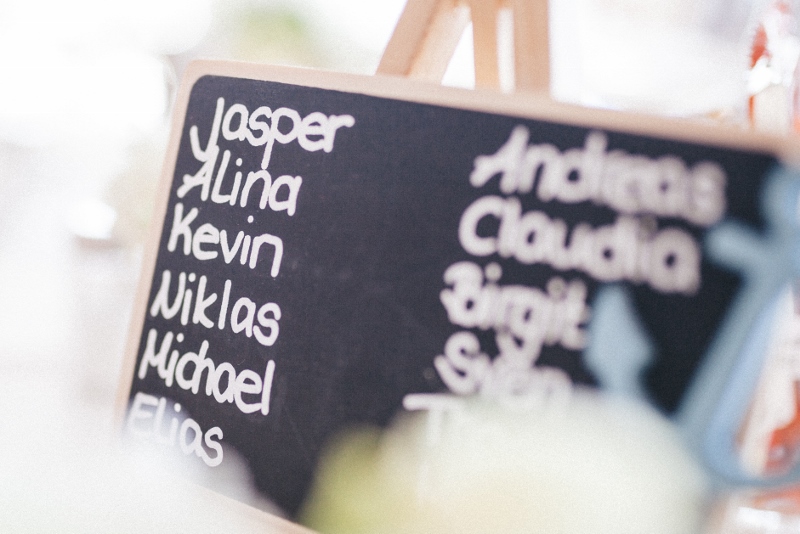
by Jisha Japagnanam – Follow @browngirlmag

“Give your daughters difficult names. Give your daughters names that command the full use of tongue. My name makes you want to tell me the truth. My name doesn’t allow me to trust anyone that cannot pronounce it right.” — Warsan Shire
My middle name, Ann, had always been my point of entry into assimilation. It was an act of pride to repeat this common, Christian, “normal” sounding name that was sandwiched between my two very South Indian first and last names. I took pleasure in it being short, easy to pronounce, and easy to accept without question. Although seemingly trivial, it allowed me to blend into the majority.
Having a unique name makes you want to cower when the teacher arrives at your letter during roll call. It makes you cringe when you hear overhead announcements and over-articulate each word during interviews so they don’t question your fluency in English. By the time you’re in Kindergarten, you have already developed a vague sense that the closer to “whiteness” you are, the easier things will be for you.
So, I’m over it.
A lifetime of mispronunciations, misspellings, and outright refusals to attempt my “difficult” name led me to be ashamed of what my parents gifted me with. I wished I had a name you could find on a keychain or a can of Coke, or at least a more common Indian name (Shoutout to all my Mayas and Jasmines). I often thought of what “American” name I would choose if I could. Being “Annie Joseph” would eliminate the daily anxiety and irritation I felt when introducing myself to strangers.
[Read More: ‘What’s Your Name?’: A Poem]
As South Asians, most of us have our Starbucks name, our dinner reservation name, the name we give those who are overwhelmed by anything different or unknown. We have experienced the struggle of simply introducing ourselves and developed different strategies in order to appease those around us. Providing rhymes, Anglicized pronunciations, shortened versions, nicknames, or even outright fabrications has sadly become second nature.
At a certain point, it becomes necessary to let go of these crutches and demand the fundamental respect of being addressed accurately. Could underlying fears of misperception be stopping us from correcting others in the first place? Are these mini speech therapy sessions with strangers even worth it?
As NPR’s Tasneem Raja stated during an episode of Code Switch:
“As a young brown woman trying to get a foothold in the overwhelmingly white and male journalism industry, the last thing I wanted was to be seen as ‘difficult’ or ‘militant’ or ‘demanding.'”
Providing simple corrections or instruction, especially as a woman of color, can be seen as an act of defiance. But not only are these corrections worth the trouble; doing so can serve as an important act of self-assertion and preservation of self-identity.
People generally butcher our names without regard or sensitivity or immediately request an alternate option before even making an attempt to address us correctly. When provided with slow, exaggerated, phonemic models, they are either unable or unwilling to try. This is not only frustrating but can feel dismissive of you as a person.
Over time we become conditioned to tell the world who we are in an apologetic tone as if our very existence is an imposition. We are subconsciously trained to make ourselves seem smaller for the sake of others’ convenience. They are unable to read or repeat syllables simply placed together in a novel way, yet somehow that embarrassment gets placed on us.
[Read More:‘Just Call Me Taz’: What Shortening My Name for More Than a Decade Taught Me]
Generally, our Caucasian counterparts with equally foreign and unique names are not required to jump through the same verbal hoops we are. Yes, sometimes they may have to deal with a “Matthew vs Mathew” spelling error or even a mispronunciation of a multi-syllabic last name. The important distinction: those mistakes do not carry the weight of perpetuating the idea of their otherness as it does for minorities. It does not manifest as negative stereotypes, racial profiling, or institutionalized racism. To us, it is a daily microaggression that opens the door for further dismissal of our identity as a whole. As South Asians, we come from an underrepresented subset of minorities, making it even more important to make sure we are clearly seen and heard whenever possible.
As a Speech-Language Pathologist, I often have to introduce myself multiple times each day. Demanding perfect pronunciation or even expecting elderly patients, many of whom suffer from cognitive impairments, to remember my name or face at all, is simply unrealistic. There are rare exceptions that can be made for the sake of functionality, so long as they don’t put us in a position of degradation. So yes, my patients can call me JJ, but you can’t.
I admit it would be easier moving through the world just as Ann, but I wouldn’t be the same person. When simply asking people to address you appropriately can be seen as an act of defiance, that builds a certain character. Pronouncing someone’s “difficult” name shows respect, precisely because it requires more effort than most. And often an earnest attempt is enough.
When you’re tempted to introduce yourself as Suzy knowing full well you’re a Susamma, stop and make the effort. Pronounce all of the syllables the way your Ammachi would, and take the time to tell people who you really are. The ones who are actually worth speaking to will at least attempt to get it right. Not only are you doing yourself and heritage a disservice if you don’t, you’re underestimating the person you’re speaking with.
When you introduce yourself without modifications you’re really saying: No, I will not be who you think I should be. I will not change a part of myself for the sake of your comfort. In the words of Queen Bey, say my name!
Or, just spell it out for Starbucks. Works like a charm.
 Jisha Japagnanam was born and raised in PG County, MD. She is a Speech-Language Pathologist working in D.C., who enjoys bottomless brunch, trashy reality t.v., and smothering her niece, nephews and cat, Sissy Mama with love.
Jisha Japagnanam was born and raised in PG County, MD. She is a Speech-Language Pathologist working in D.C., who enjoys bottomless brunch, trashy reality t.v., and smothering her niece, nephews and cat, Sissy Mama with love.




